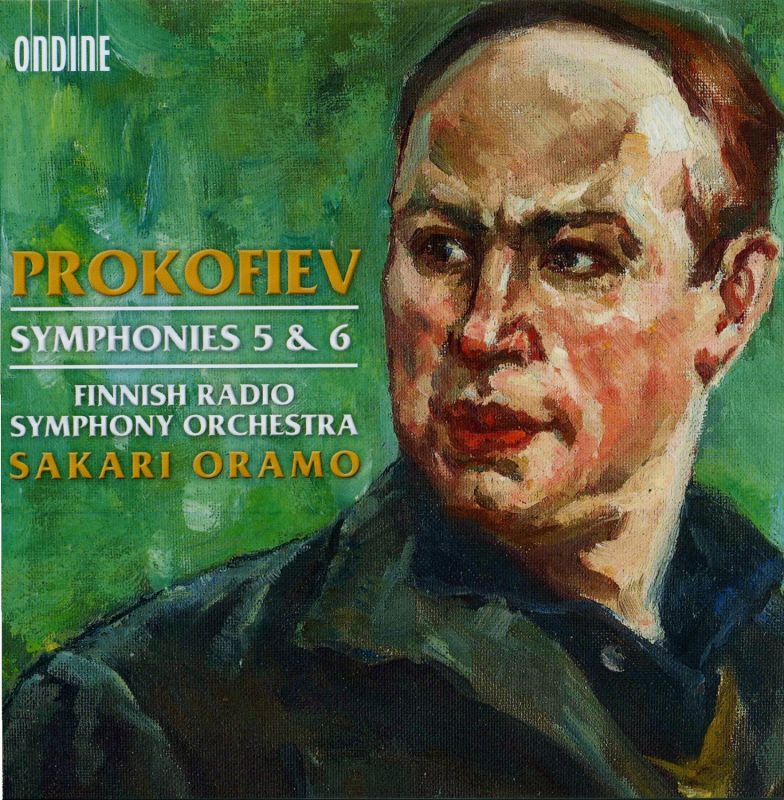PROKOFIEV Symphonies Nos 5 & 6
Adjacent Prokofiev from Oramo and his old orchestra
View record and artist detailsRecord and Artist Details
Composer or Director: Sergey Prokofiev
Genre:
Orchestral
Label: Ondine
Magazine Review Date: 12/2012
Media Format: CD or Download
Media Runtime: 80
Mastering:
DDD
Catalogue Number: ODE1181-2

Tracks:
| Composition | Artist Credit |
|---|---|
| Symphony No. 5 |
Sergey Prokofiev, Composer
Finnish Radio Symphony Orchestra Sakari Oramo, Conductor Sergey Prokofiev, Composer |
| Symphony No. 6 |
Sergey Prokofiev, Composer
Finnish Radio Symphony Orchestra Sakari Oramo, Conductor Sergey Prokofiev, Composer |
Author: David Gutman
At least one of our Sunday newspapers has found Sakari Oramo on ‘blistering form’ in the Fifth but such a verdict will seem incomprehensible to older hands. Much as I admire Oramo in other repertoire, he seems ineffective here, defanging the invention with generally rapid tempi and lightened textures, presumably in an attempt to avoid the Soviet-era ponderousness which many will consider an inescapable part of its expressive territory. Composers under an obligation to structure their work so that it could be perceived as interpreting current problems from the perspective of a Utopian future, portraying today’s defects as positive forces pushing Stalin’s ideal society towards the ultimate goal of socialism, were not in a position to produce lithe neo-classical jingles. Yet it seems that is what Oramo and his orchestra would like us to hear. It does mean that we get plenty of piano in the Fifth and can relish more of the Sixth’s unique sonic undergrowth.
That work’s closing bars are played absolutely straight so that the emotive final grinding of gears emphasised by such conductors as the aforementioned Mravinsky, Neeme Järvi, Vladimir Ashkenazy and Valery Gergiev never actually happens: this kind of reading may have become traditional but it isn’t actually in the notes as printed. Such is Oramo’s civility that there isn’t even much in the way of screaming dissonance at the start of the central Largo. And the finale of the Fifth, while agreeable enough, fails to cap the fluid approach in the previous movements. Writing in our August issue, Edward Seckerson felt that Marin Alsop’s broad interpretation of the Fifth was excessively soft-grained. Perhaps so; but she has its measure in a way that seems to elude Oramo. For all the finesse and continuity he elicits in Helsinki there’s an emotional blandness throughout.
This is a competitive market, albeit less so in the Sixth where Gergiev’s top-rated live account is subsumed within another boxed cycle. In their Fifth, Herbert von Karajan and his Berliners remain unassailable…but you knew that.
Discover the world's largest classical music catalogue with Presto Music.

Gramophone Digital Club
- Digital Edition
- Digital Archive
- Reviews Database
- Full website access
From £8.75 / month
Subscribe
Gramophone Full Club
- Print Edition
- Digital Edition
- Digital Archive
- Reviews Database
- Full website access
From £11.00 / month
Subscribe
If you are a library, university or other organisation that would be interested in an institutional subscription to Gramophone please click here for further information.




